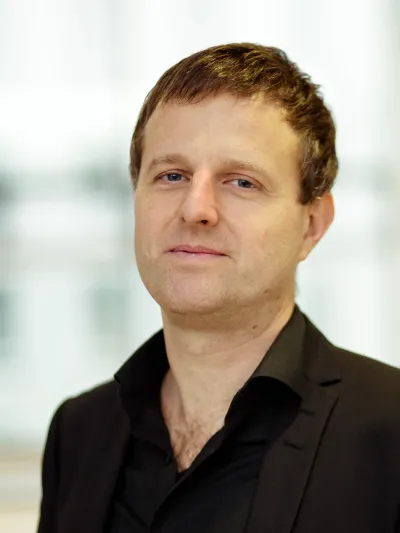Preliminary Study: Unaccompanied Underaged Refugees in Brandenburg
Preliminary study "Evaluation der Unterbringungssituation unbegleiteter minderjähriger Geflüchteter im Land Brandenburg"

Abstract
The study aims to record the situation of unaccompanied foreign minors. The study will analyse the individual perspective of the young refugees as well as the communal structure of services offered by youth welfare offices and care facilities, how these converge in the course logic of the individual case. In the preliminary study proposed here, the focus will be on recording the perspective of the care facilities from the point of view of the social workers. Individual refugees will be interviewed in detail as an exploratory and supplementary measure.
The preliminary study is proposed in order to address urgent questions regarding the evaluation and optimisation of services. The preliminary study provides a data-based material basis for a conference with key actors who are involved in the accommodation and care of refugees in the state of Brandenburg. This will provide the basis for a qualifying evaluation study, which is planned as a second step. It will then be possible to more comprehensively record the multi-perspectivity of the case histories. The evaluation aims at recommendations for policy, for institutions and for professionals. Another aim is to publish relevant research findings in a field that has been little studied so far.
Key questions of the scientific study
Subject perspective:
What makes up the group of unaccompanied foreign minorsin the state of Brandenburg? What are the unaccompanied foreign minors' motives? How do the unaccompanied foreign minors assess their flight and their situation in Germany? What are possible motives for fleeing and how does this influence their situation in Germany? More generally: What interests and needs characterise their situation?
Structural perspective:
How can the service landscape be characterised? Where are there gaps in the services and breaking points? What problems are evident? Which services work well and have possibly established themselves as "best practice"?
Future perspectives:
What recommendations follow from this?
An explorative preliminary study seems to make sense, especially in view of the cultural diversity and high number of cases. The preliminary study has the task of gaining important insights into the complex field of receiving and accompanying unaccompanied foreign minors. First of all, central topics, problems and categories are to be recorded in a field-defining manner in order to be able to build an in-depth study on this. The evaluation study planned for the second stage, which will be of longer duration, will aim to record the case histories in their multi-perspectivity of the people involved. It is planned to focus in particular on the subject perspective of the refugees, the perspective of the youth welfare offices and administration as well as that of the social workers in the youth welfare institutions. This will result in more in-depth insights, statistical data collection, further differentiated recommendations for policy and possibly also a training concept for professionals in child and youth welfare.
The overarching goal of the scientific research is ultimately to achieve an improved assessment of the group of unaccompanied foreign minors and their situation in the state of Brandenburg. On the one hand, this refers to the subject perspective of the unaccompanied foreign minors themselves, and on the other hand, to the structure of services. In this way, the study provides important prerequisites for optimised planning of services. The study thus contributes to
- to develop a more orderly and more precisely fitting offer landscape,
- the work situation of those involved and above all
- the situation of the unaccompanied foreign minors in the state of Brandenburg.
The research supports policy-makers in dealing with the challenges posed by the influx of young refugees in the field of child and youth welfare and beyond.
Research approach/research and process design
The following approach is proposed for the preliminary study: First, field explorations will be conducted with the aim of 40 - 60 cases in the state of Brandenburg. In view of the complexity of the project – heterogeneity of case histories, unclear life situations, frequent lack of German language skills, the necessity of using interpreters, the diversity of the situation in the districts, varying intensity of KJHG measures, etc. – it is necessary to conduct a field survey. – we will focus on interviewing social workers in the care facilities. Surveys on case-specific biographies, refugee backgrounds, case histories in the German support system, the personal situation, etc., as well as on the question of how these are presented from the social workers' point of view, should already provide substantial insights within the project duration of half a year. This will be supplemented by interviews with the refugees living in the institutions themselves, but for pragmatic reasons in a realistic number of cases.
The focus is on young people from Afghanistan (614 cases) and Syria (432 cases). These are 44.4% and 31.3% respectively of all umAs recorded in the state of Brandenburg (as of January 2016, figures from the MBJS). This means that the preliminary study would enable us to look at three quarters of all cases. Another sensible restriction seems to be to concentrate the preliminary study on male refugees for the time being. Of the 1046 cases from the countries of origin Afghanistan and Syria, 20 are female, 871 male (no information is recorded for 147). Despite the small number of cases (2.2%), the female refugees are not to be neglected. In view of the intention of this preliminary study to obtain an orienting insight into the situation of the unaccompanied foreign minors in a first step on the basis of results that are as meaningful as possible, such a focus seems sensible in our opinion.
The field investigations and interviews in the preliminary study serve to acquire field-specific knowledge for improved planning of a larger-scale second evaluation study. On the basis of these initial field explorations, research instruments can then be developed for a more in-depth study. In the context of a larger evaluation study, the inclusion of a larger number of cases would be desirable. It would be even more important to take into account all those involved in the help process: youth welfare offices, clearing centres, permanent placement, guardians, measures according to §41, etc. The most important aspect would be the inclusion of all those involved. The greatest importance, as it were, would be to include the perspective of those affected in sufficient differentiation; which could then include the inclusion of further refugee groups (girls and further countries of origin).
The research data will be analysed both quantitatively and qualitatively. In addition, a thematic analysis will be conducted with a view to retro- and prospective assessments of the umA. The research results will be prepared in the form of a final report. Further publications in specialist journals and presentations at specialist conferences are planned. The results will also prepare for an in-depth, further evaluation study.

Contact
Project management
Project management
Dr Timo Ackermann
